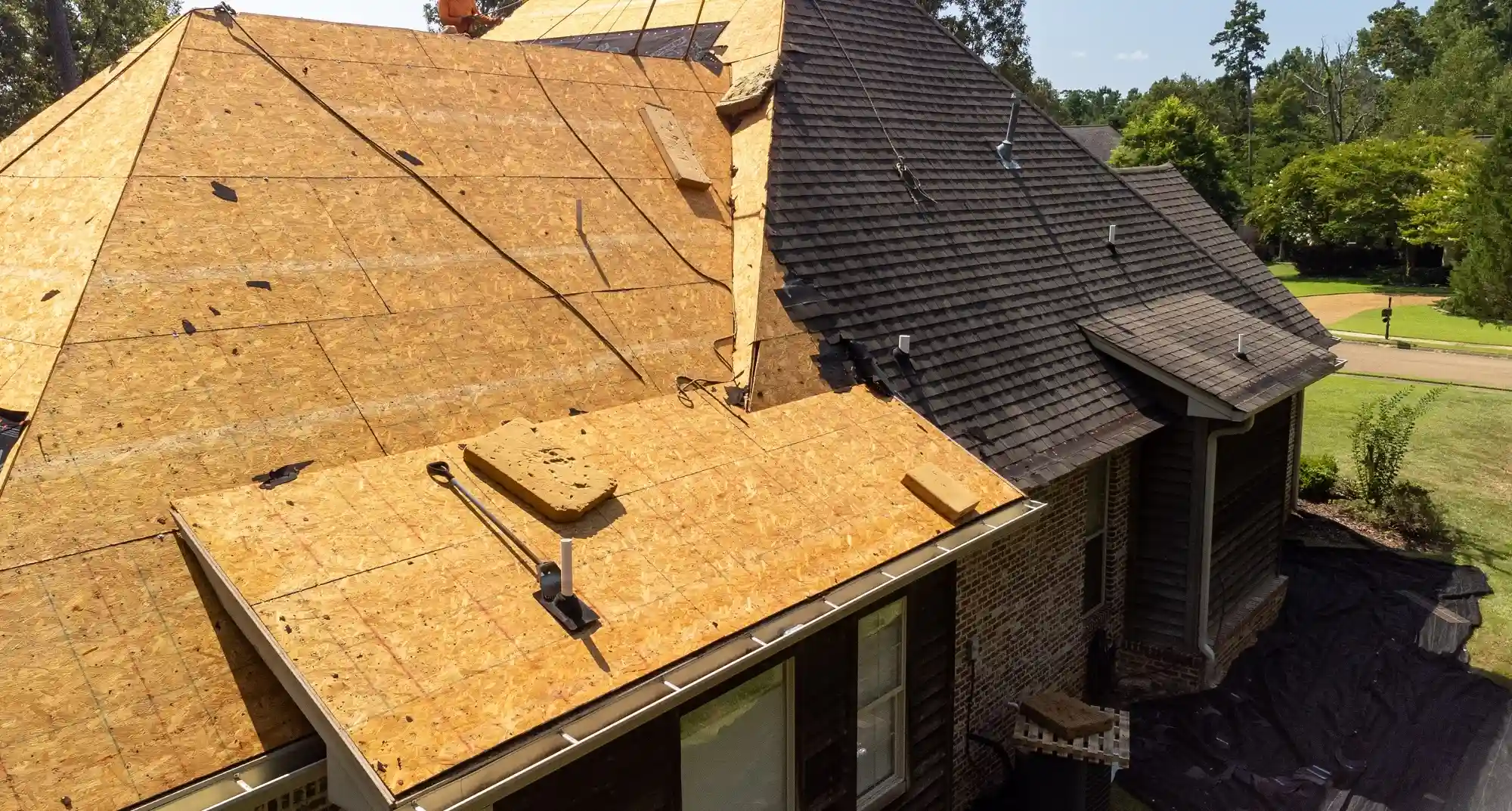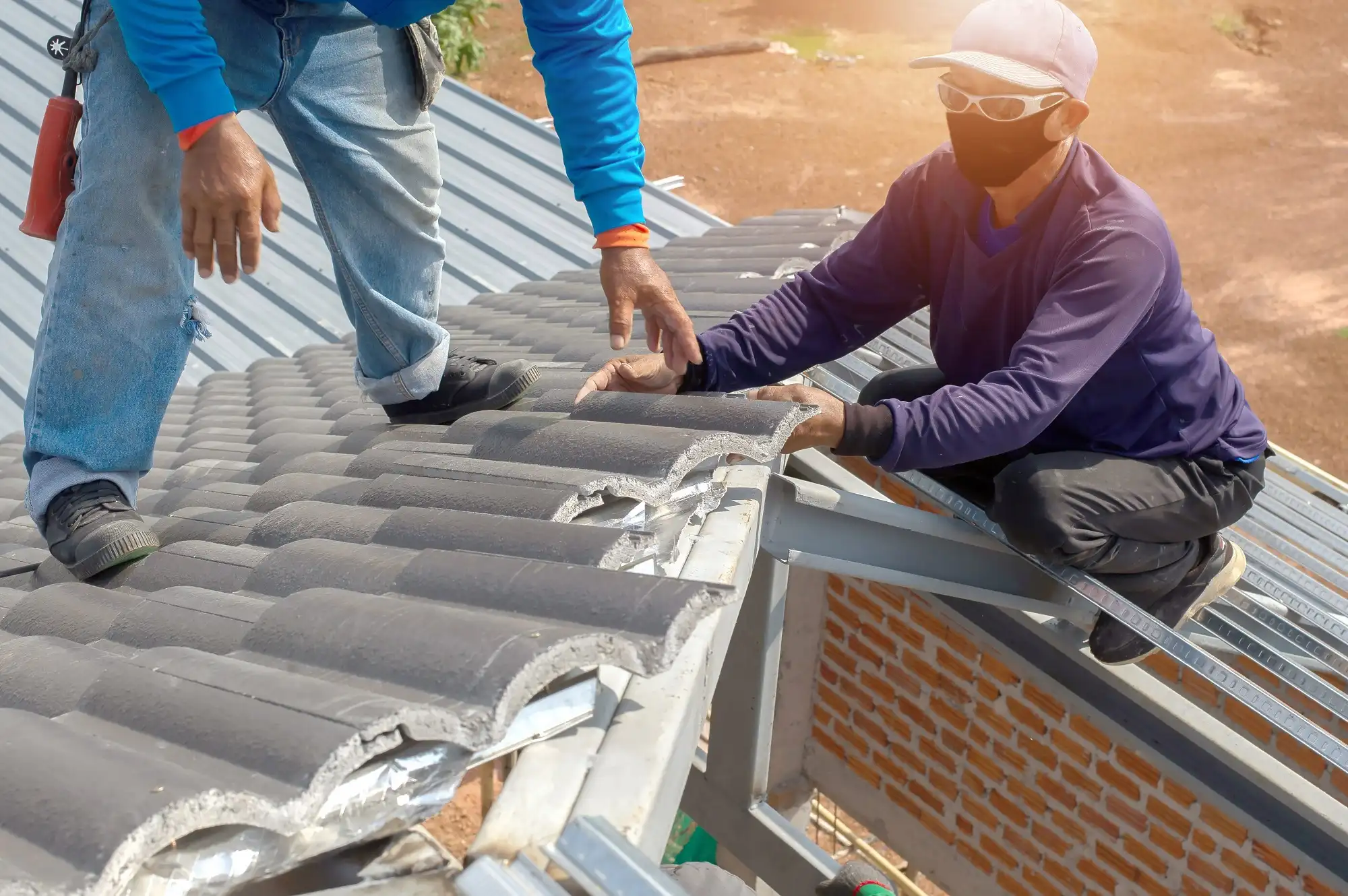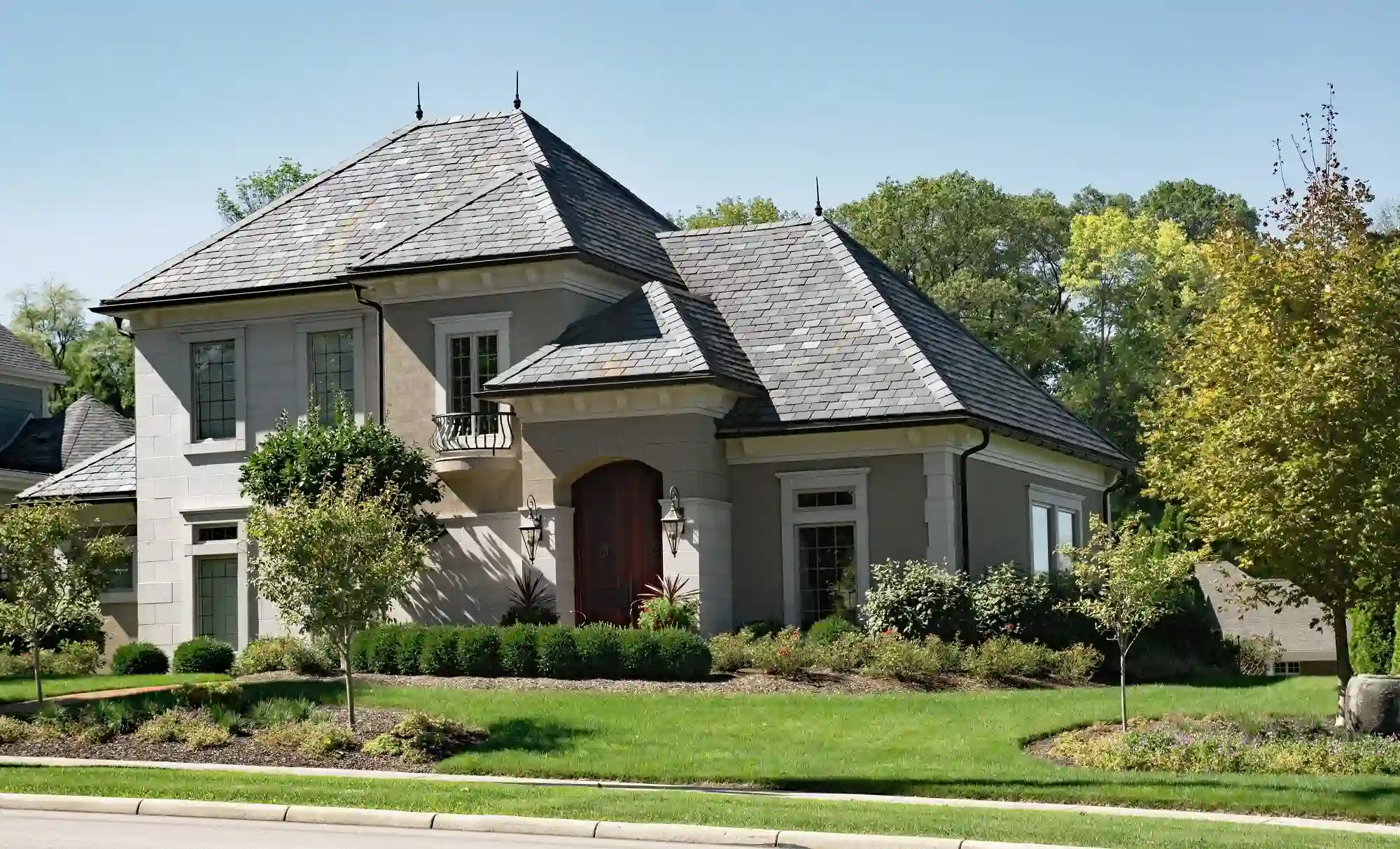The short answer? It's entirely your choice, but you don't have to. With over 30 years of experience completing 5,000+ roofing projects across Chicagoland, we've seen homeowners handle this decision in various ways. What matters most is that you're prepared and comfortable with your choice.
As roofing experts who've guided countless families through this process, we'll walk you through everything you need to know to make an informed decision that works for your family's needs and circumstances.
The Reality of Roof Replacement: What to Expect
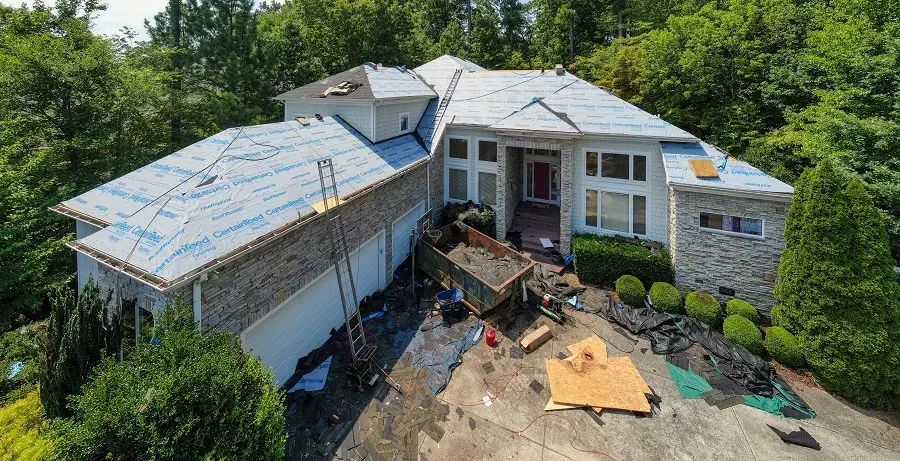
When most roofing contractors begin your roof replacement project, you'll experience significant disruption to your daily routine. Understanding what the roof replacement process involves helps you prepare mentally and practically for the days ahead.
The Constant Noise Factor
Let's be honest — roof replacement is loud. Really loud. From the moment the roofing team begins tearing off your existing roof, you'll hear constant banging, scraping, and the general sounds of construction. Most people find that by 9 AM, if they decide to stay home, they're ready to leave because of the noise levels.
The constant noise affects everyone differently:
- Babies and young children will have difficulty napping
- Pets often become stressed and anxious
- Elderly family members may find the constant banging overwhelming
- Remote workers will struggle to concentrate or take calls
Duration and Timeline
Most roof replacement projects take one to three days to complete, depending on:
- The size of your home (a two-story home typically takes longer)
- Weather conditions
- The complexity of the roof design
- The material type being installed
During this time, the noise and activity remain fairly constant throughout daylight hours. The job progresses systematically, but there's rarely a "quiet period" during active work hours.
Daily Disruption Factors
Beyond noise, several factors affect your daily life:
- Blocked driveway from dumpsters and roofing vehicles
- Limited access to certain entrances
- Vibrations throughout the house can affect wall hangings
- Dust and debris despite protective measures
Safety Considerations: Protecting Your Family
Safety hazards are the primary reason most roofing contractors recommend that homeowners consider temporary relocation during the roof replacement process.
Falling Debris Risks
Even with the most careful roofing team, debris can fall in unexpected places:
- Nails and small materials may scatter beyond the immediate work area
- Larger pieces of the existing roof can shift during removal
- Tools or equipment might accidentally drop
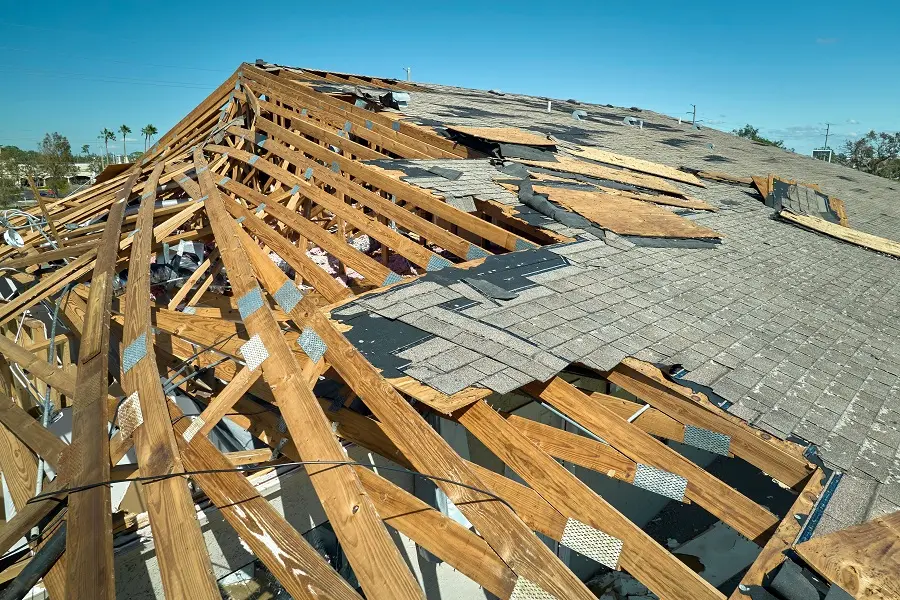
If you stay home during a roof replacement, avoid these areas:
- The gutter line and the immediate perimeter of your house
- Areas directly below where workers are active
- The construction zone marked by your roofing contractor
Protecting Vulnerable Family Members
Children and elderly family members: Keep them away from the construction zone and consider alternative arrangements for the most active work days. The combination of noise, debris, and general chaos can be overwhelming and potentially dangerous.
Pets: Many homeowners prefer to board pets or arrange for them to stay elsewhere. The constant noise and unfamiliar workers can cause significant stress for animals. If pets stay home, keep them indoors and away from work areas.
Vehicle and Property Protection
Your driveway and vehicles:
- Move cars to the street before the roofing team arrives
- Ensure clear access for other vehicles and emergency services
- Protect outdoor furniture and landscaping with tarps or by moving items
Preparing Your Home for Your Roof Replacement
Whether you decide to stay home or leave, proper preparation protects your property and makes the roof replacement process smoother.
Interior Preparation
Protect valuable items:
- Remove or secure wall hangings, especially near exterior walls
- Clear shelves of fragile items
- Document existing conditions with photos
Prepare for vibrations: The roof replacement process creates significant vibrations throughout your house. Items that seem secure may shift or fall during the constant banging of the tear-off and installation.
Exterior Preparation
Landscaping and outdoor areas:
- Cover delicate plants and outdoor furniture
- Move grills, patio furniture, and decorative items away from the house
- Trim overhanging branches that might interfere with the work
Access and safety:
- Clear pathways for workers and equipment
- Ensure the project manager can access all necessary areas
- Identify alternative entrances if the main entrance is blocked
Read More: Eleven Essential Tips For A Successful Roof Installation
The Benefits of Staying Home During Roof Replacement
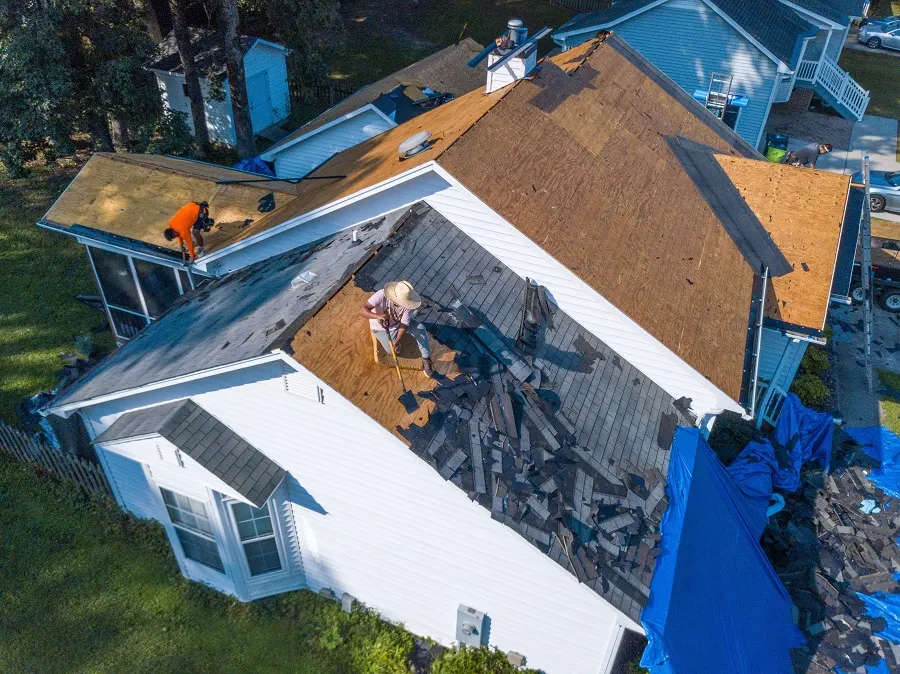
Some homeowners prefer to stay and monitor the roof replacement process, and there are valid reasons for this choice.
Peace of Mind
Direct observation: Watching the progress can provide reassurance that the job is being done correctly. You can see the quality of materials being installed and observe the roofing team's professionalism firsthand.
Immediate communication: Being present allows for real-time communication with the project manager about any concerns or questions that arise during the roof replacement process.
Practical Advantages
Property security: Your presence provides additional security for your home and belongings during construction.
Quick decision making: If unexpected issues arise (like discovering damage to roof decking), you can make decisions immediately rather than waiting for phone calls and callbacks.
The Case for Temporary Relocation
Most roofers and many homeowners find that leaving during the most intensive days of roof replacement provides significant benefits.
Reduced Stress and Disruption
Peaceful environment: Temporary relocation allows you to maintain normal routines without constant noise and disruption. This is especially valuable for:
- Families with young children
- Remote workers
- Anyone with health conditions affected by stress or noise
Better rest: Starting each day away from the construction zone means better sleep and less fatigue from the roof replacement process.
Family and Pet Considerations
Stress-free environment for pets: Taking pets elsewhere eliminates the anxiety and stress that construction noise causes animals.
Normal routines for children: Children can maintain regular nap schedules and activities without the disruption of roof replacement work.
Making the Right Decision for Your Family
The decision to stay home during roof replacement depends on several personal factors that only you can evaluate.
Consider Your Household Composition
Young children or babies: If you have infants or toddlers, the constant noise makes normal routines nearly impossible. Most people with young children find temporary relocation more practical.
Pets: Stress-sensitive pets often do better away from the construction zone. However, some homeowners prefer to keep pets close rather than board them.
Work requirements: If you work from home, consider whether you can maintain productivity during roof replacement or if alternative arrangements are necessary.
Evaluate Your Tolerance Levels
Noise sensitivity: Some people adapt to construction noise better than others. Consider your personal tolerance for constant banging and activity.
Control preferences: Some homeowners feel more comfortable monitoring the roof replacement process directly, while others trust their roofing contractor completely.
Practical Considerations
Alternative accommodations: Consider the availability and cost of temporary accommodations.
Options include:
- Staying with family or friends
- Short-term hotel stays
- Day trips to minimize time at home during active work
Work and school schedules: Align your decision with existing commitments. If family members are typically away during work hours, staying home might be less disruptive.
What to Expect If You Stay Home
If you decide to stay home during your roof replacement, knowing what to expect helps you prepare mentally and practically for the experience.
Daily Schedule Impact
Early morning start: Most roofing contractors begin work between 7-8 AM and continue until late afternoon. The noise starts early and continues consistently.
Restricted movement: You'll need to coordinate with the roofing team when moving in and out of your house, especially if your driveway is blocked.
Interaction with the Roofing Team
Professional boundaries: While it's perfectly acceptable to observe the work, maintain appropriate boundaries with the crew. They're focused on safety and efficiency.
Communication protocol: Direct questions to the project manager rather than individual workers. This ensures clear communication and doesn't disrupt the workflow.
Safety Protocols for Homeowners
Stay clear of work areas: Even if you're staying home, avoid the construction zone and areas where debris might fall.
Indoor safety: Be prepared for dust and vibrations. Consider wearing ear protection if the noise becomes overwhelming.
Working with Your Roofing Contractor
Regardless of whether you stay home during your roof replacement, clear communication with your roofing contractor ensures a smooth process.
Pre-Project Planning
Discuss your plans: Inform your roofing contractor whether you plan to stay or leave. This helps them plan access, security, and communication protocols.
Emergency contacts: Provide alternative contact information if you'll be away during the roof replacement process.
Setting Expectations
Timeline clarification: Understand the expected duration and daily schedule for your roof replacement project. Weather and unexpected issues can affect timing.
Communication preferences: Establish how and when you want updates on progress, especially if you're not present during the work.
Alternative Arrangements and Considerations
If you decide that staying home during the roof replacement isn't right for your family, several alternatives can make the process easier.
Temporary Relocation Options
Stay with family or friends: This often provides the most comfortable and cost-effective alternative during roof replacement.
Short-term rentals: Consider vacation rentals or extended-stay hotels for the duration of your roofing project.
Day trips and activities: Plan special outings or activities that keep the family away during the most intensive work periods.
Pet Care Arrangements
Pet boarding: Many homeowners find that boarding pets during the roof replacement reduces stress for both animals and family members.
Pet sitting: Friends or family members might care for your pets at their homes during the roofing project.
Veterinary advice: For particularly anxious pets, consult your veterinarian about temporary anti-anxiety solutions during the roof replacement process.
Maintaining Normal Routines
Work arrangements: Consider working from alternative locations if you typically work from home.
School and activities: Maintain your children's normal schedules by planning carpools or alternative arrangements during roof replacement.
Security and Property Protection
Whether you stay home during roof replacement or leave, protecting your property remains important.
Home Security Considerations
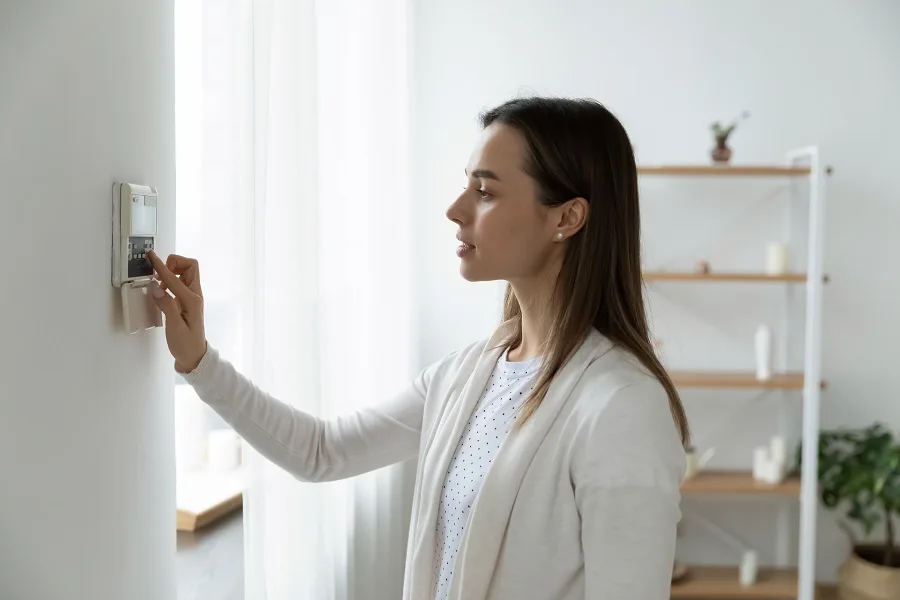
Alarm systems: Disable your home security system during roof replacement work. The vibrations and activity can trigger false alarms. Most roofing contractors recommend this precaution.
Valuables and important items: Secure or relocate valuable items regardless of whether you're staying home. The vibrations during roof replacement can cause items to shift or fall.
Working with Professional Contractors
Trust and verification: When you hire a reputable roofing contractor like Greater Midwest Exteriors, you're working with insured, bonded professionals who respect your property, whether you're present or not.
Documentation: Professional roofing contractors document the condition of your property before beginning work and take responsibility for any damage during the roof replacement process.
Special Considerations for Different Home Types
The type and size of your home can influence your decision about staying home during the roof replacement.
Single-Story vs. Two-Story Homes
Single-story homes: Often experience more interior noise and vibration during the roof replacement since the work is closer to the living spaces.
Two-story homes: May offer more options for staying away from the most affected areas, though upper floors typically experience more disruption.
Home Layout Considerations
Open floor plans: Noise travels more freely through open layouts, potentially making the entire house uncomfortable during roof replacement.
Multiple levels: Homes with basements or multiple floors may offer quiet spaces where family members can retreat during the loudest periods of the roof replacement work.
Planning for Weather and Delays
Weather conditions can significantly affect roof replacement timelines and your planning decisions.
Weather-Related Delays
Rain and storms: The roof replacement work stops during precipitation, potentially extending the project timeline.
Extreme temperatures: Both hot and cold weather can affect work schedules and the roof replacement process.
Flexibility in Planning
Adaptable arrangements: If you're planning temporary relocation, maintain flexibility for weather-related delays in the roof replacement schedule.
Communication during delays: Stay in contact with your roofing contractor about weather-related schedule changes.
Making Your Final Decision
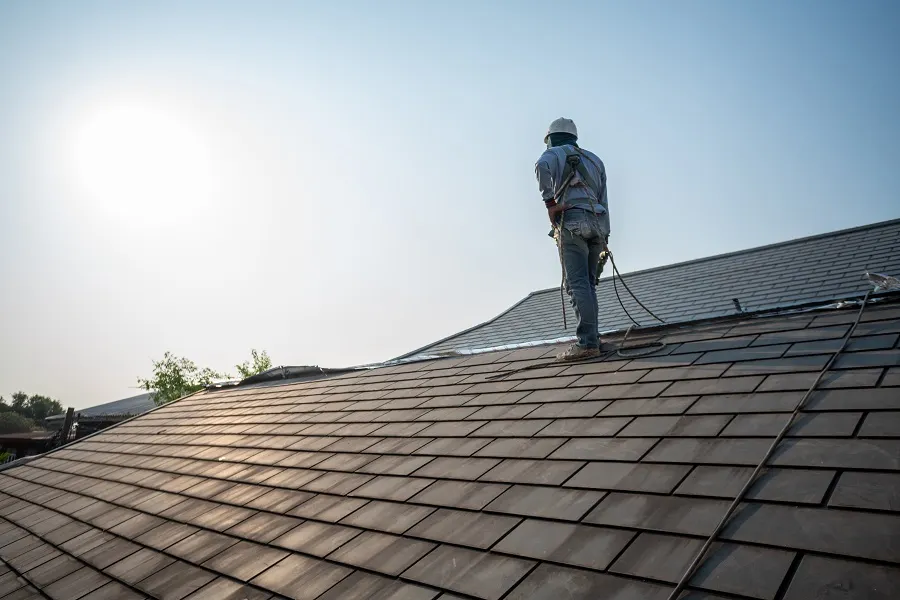
After considering all factors, most homeowners find that their decision about staying home during roof replacement becomes clear based on their specific circumstances.
Trust Your Instincts
Personal comfort level: Choose the option that feels most comfortable for your family's needs and stress tolerance.
Practical considerations: Factor in costs, convenience, and family logistics when making your final decision about the roof replacement process.
Working with Greater Midwest Exteriors
Our recommendation: Based on 30+ years of experience, we typically recommend temporary relocation during the most intensive days of the roof replacement, especially for families with young children or pets.
Our commitment: Whether you stay or leave, our team treats your property with the same care and professionalism. We're fully insured, bonded, and committed to protecting your home throughout the roof replacement process.


.svg)
